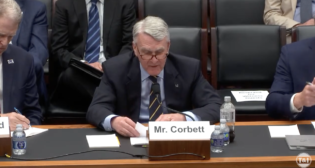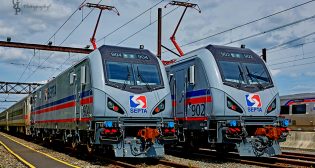
Transit Briefs: Brightline, RTA, WMATA
Written by Marybeth Luczak, Executive Editor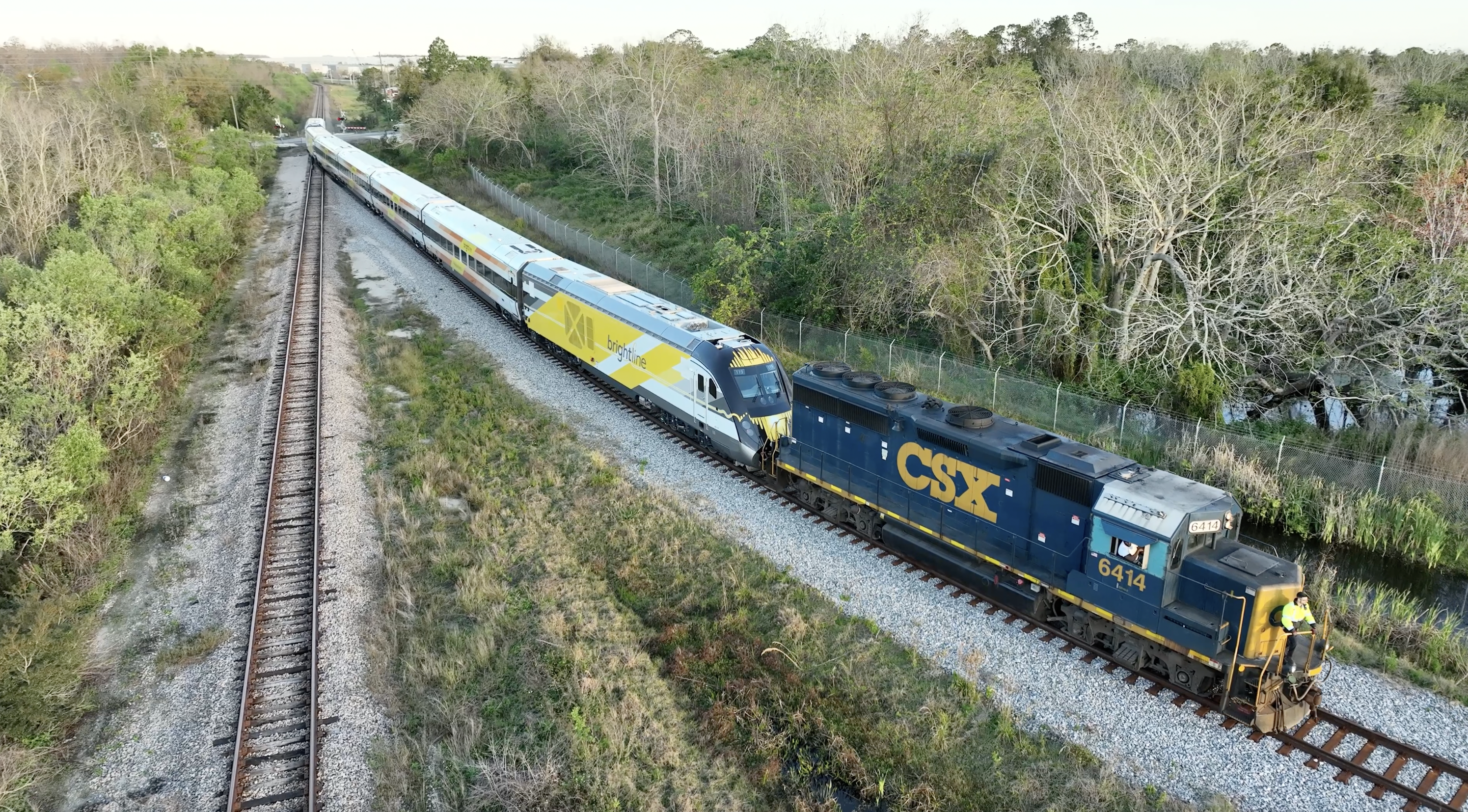
Brightline on Feb. 19 welcomed the Bright Orange 2 trainset to Orlando, Fla., following its 10-day journey from Siemens’ rolling stock facility in Sacramento, Calif.
The Bright Orange 2 trainset from Siemens Mobility arrives at Brightline, Florida’s private-sector passenger railroad. Also, the Regional Transportation Authority of Northeastern Illinois (RTA) adopts a new strategic plan; and Washington Metropolitan Area Transit Authority (WMATA) selects Reflexions to update its website and fare-collection web applications.
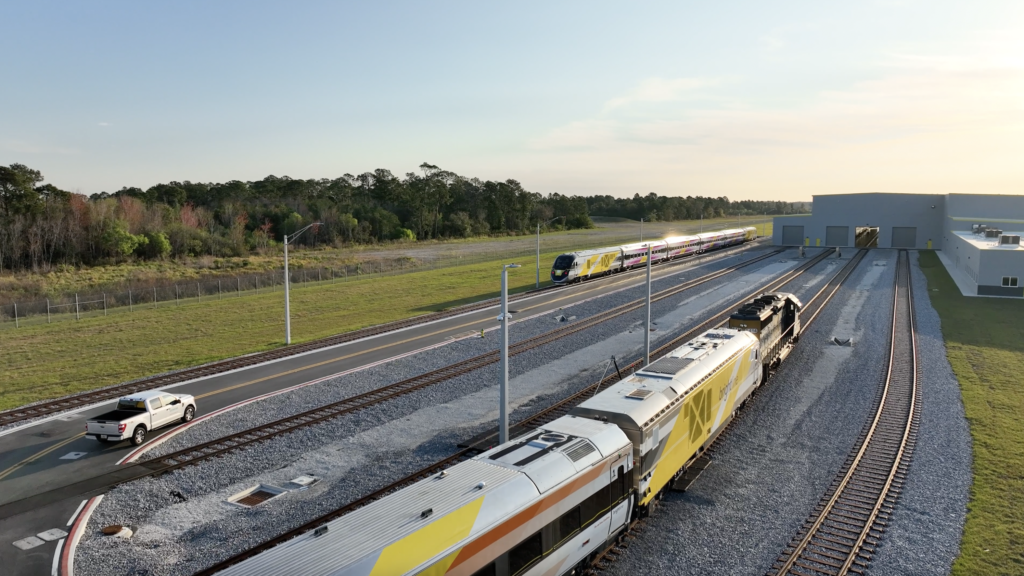
Brightline on Feb. 19 welcomed the Bright Orange 2 trainset to Orlando, following its 10-day journey from Siemens’ rolling stock facility in Sacramento, Calif. The railroad is now one step closer to extending its 67-mile Miami-to-West Palm Beach line north to Orlando. Bright Orange 2, the last of five new trainsets from Siemens Mobility that will help serve the $2.7-billion, 170-mile extension, was delivered with an extra locomotive, which Brightline said will be used to “replace locomotives that are undergoing repair or maintenance.”
The first trainset was delivered in October 2021; Bright Blue 2 arrived in February 2022; and Bright Pink 2 and Bright Green 2 arrived July 21, 2022. Each comprises four coaches and two Charger diesel-electric locomotives (one at each end). Brightline now has 10 trainsets in its fleet.
According to Brightline, the extension to Orlando is 90% complete, and a second-quarter 2023 opening date is targeted. The railroad on Jan. 9 released a video and renderings of its future 37,350-square-foot Orlando Station.
In related developments, Brightline announced Feb. 6 that it has launched a new rail safety campaign and safety public service announcement (PSA) to remind residents that their decisions around the tracks will impact others in the community.
For more on the Brightline extension project, read “Rolling Into Orlando,” by Railway Age Engineering Editor and RT&S Editor-in-Chief David C. Lester.
The RTA Board on Feb. 16 adopted a new strategic plan that it said “offers improvements to the regional transit system and revenue options to address a $730 million annual operating budget gap in 2026.” The plan, which has been under development for a year and was released for public comment in December, outlines 14 key “Areas of Advocacy and Action” that were co-created with stakeholders to guide priorities in areas like funding, safety, speed and reliability, RTA reported. It also identifies a number of actions that RTA, Chicago Transit Authority (CTA), Metra commuter rail and Pace bus service will work on together in 2023, including:
- “Pursuing additional funding for transit operations, which is set to hit a funding cliff in 2026 that can’t be solved by raising fares or cutting service.” RTA reported that at the end of 2021, it completed allocation of $3.4 billion in federal relief funding provided to the region to help offset fare revenue losses from declining ridership due to the pandemic. Remaining federal relief funding is being used to balance the current budget, but is projected to last through third-quarter 2025. RTA, CTA, Metra, Pace and Chicago Metropolitan Agency for Planning (CMAP) officials estimate that beginning in 2026, the system could face an annual budget gap of $730 million assuming current service levels are maintained region-wide, according to RTA. The group “evaluated 27 revenue options and identified 11 that have the potential to address gaps,” RTA reported. “Their findings show that there is no simple or singular funding solution; instead, the RTA will engage its partners and stakeholders to pursue a combination of available solutions to close the funding gap.”
- “Convening a region-wide, cross-sector safety and security summit to facilitate information sharing and explore holistic solutions to the challenges affecting transit.”
- “Seeking funding to pilot an expanded regional free or reduced fare program. …”
- “Collaboratively beginning development of a regional transit climate action plan that identifies how transit can support the region’s climate action goals, outlines regional strategies that will encourage more people to ride transit, and charts a course to reduce the footprint of the transit system and move toward zero-emissions for transit operations.”
“The adoption of this plan represents a region-wide united front to meet the challenges facing transit head-on and to make crucial improvements to the system,” RTA Board Chairman Kirk Dillard said. “Our Board comprises representatives from all six counties in Northeast Illinois. Representatives from the CTA, Metra and Pace spoke in support of the plan and have played an active role in its development. Our team co-created the plan with more than 100 riders and stakeholders and heard from thousands about their priorities. The result is one of the strongest strategic plans the agency has ever seen, which matches the urgency of this moment for our transit system.”
“This new strategic plan recognizes the changes and challenges for public transportation in the post-COVID world and gives us a roadmap for adapting that is practical and flexible,” Metra CEO/Executive Director Jim Derwinski said. “To survive and grow, public transportation will need support from our stakeholders and the public, and this plan will help not only by showing our value to the region but our plan for moving forward.”
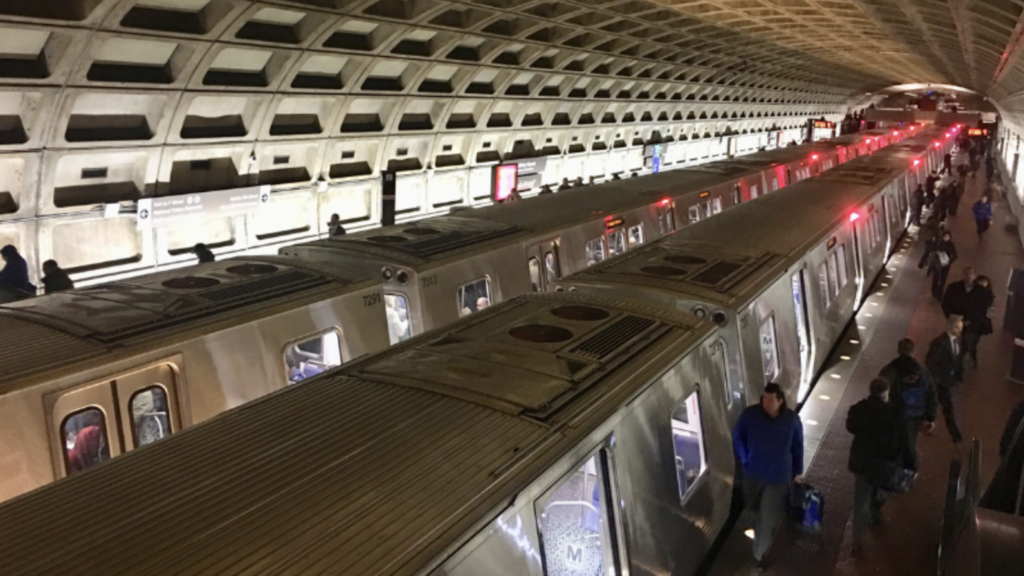
Reflexions on Feb. 16 reported signing a multi-million dollar contract to redesign the website and SmartTrip fare-collection web applications for WMATA, which offers rapid transit, bus, and accessibility and paratransit services. The work, which began in late 2021, is set to be completed in 2024, according to the digital strategy, design and development firm based in New York City.
“While separately helping New York’s Metropolitan Transportation Authority successfully launch its … OMNY fare payment system alongside Cubic Transportation Systems, our team is well-positioned to help Metro [WMATA] with digital strategy, design and implementation support,” said Daniel Leslie, a managing partner at Reflexions, which is also performing similar design work for the Port Authority of New York and New Jersey and Massachusetts Bay Transportation Authority (MBTA), among other agencies in the U.S. and Australia.
